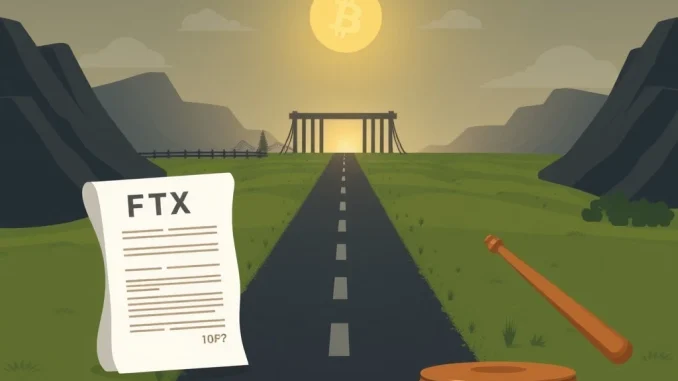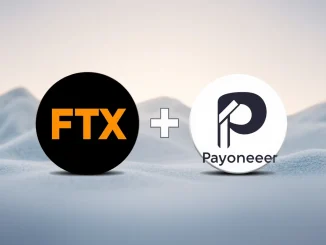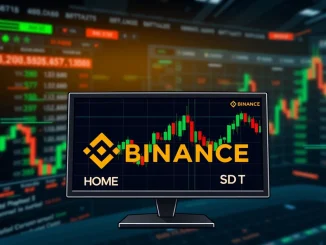
The collapse of FTX sent shockwaves through the cryptocurrency world, leaving countless users in limbo, grappling with lost funds and uncertain futures. For many, especially those in specific regions, the path to recovery seemed blocked by legal complexities and geographical restrictions. But recent developments offer a beacon of hope for FTX creditors, promising a more equitable resolution.
A Glimmer of Hope for FTX Creditors
The latest updates from the ongoing FTX bankruptcy proceedings bring a sigh of relief to a significant portion of affected users. As shared by @historian_ftx, an individual believed to be an FTX creditor actively tracking the case, a crucial shift is underway. The updated motion in the bankruptcy court is poised to significantly reduce or even eliminate the contentious clause that previously mandated immediate claim forfeiture based purely on a creditor’s jurisdiction. This is a monumental step forward, suggesting that the geographical barriers that once seemed insurmountable are finally being addressed.
Navigating the Complexities of FTX Bankruptcy Proceedings
The FTX bankruptcy case has been one of the most complex and closely watched in crypto history. Initially, many feared that location would be a permanent hurdle. A July 2 court filing had even listed 49 countries and regions where users might be excluded from receiving compensation. This created immense anxiety, particularly for those who had completed their Know-Your-Customer (KYC) requirements in a restricted country but resided elsewhere, or for individuals who had since moved. The latest motion directly confronts this challenge, demonstrating a commitment by the bankruptcy estate to find more inclusive solutions for all FTX creditors.
Breaking Barriers: Addressing Restricted Jurisdictions
One of the most significant takeaways from the recent hearing is the flexibility now being offered regarding restricted jurisdictions. Previously, creditors in regions like China or potentially Russia faced the grim prospect of losing their claims entirely due to their geographical location. The new understanding suggests that these creditors may now be permitted to relocate to non-restricted jurisdictions, such as Singapore or the United Arab Emirates (UAE), and still qualify for distributions. This clarifies a critical point: jurisdiction is not irrevocably locked at the time of a snapshot or initial claim filing. Instead, it can be updated prior to the final distribution, providing a vital lifeline for many who felt their claims were lost.
Paving the Way for Fair Crypto Distributions
This development is particularly impactful for those who complied with KYC requirements in a restricted country but have since moved or have a legitimate connection to a non-restricted region. The ability to update one’s registered jurisdiction before crypto distributions commence ensures that more individuals will have a fair chance at recovering their assets. This move reflects a more pragmatic and equitable approach by the bankruptcy estate, acknowledging the global nature of the FTX user base and the diverse circumstances of its creditors. It underscores the importance of ongoing engagement with the legal process, as what seemed like a definitive barrier can indeed be overcome.
Minimizing Claim Forfeiture: A Positive Shift
The potential scaling back or removal of the immediate claim forfeiture clause is a powerful indicator of progress. It demonstrates a move away from a blanket exclusion policy towards a more nuanced approach that prioritizes returning funds to legitimate creditors wherever possible. This shift not only offers tangible hope for affected individuals but also sets a precedent for how future large-scale crypto bankruptcies might handle similar jurisdictional challenges. It fosters greater trust in the recovery process and highlights the importance of persistent advocacy from creditor groups and individuals.
Conclusion: A Step Towards Recovery and Resolution
The latest FTX bankruptcy hearing has undeniably offered a significant ray of hope for FTX creditors, especially those previously disadvantaged by their location in restricted jurisdictions. The potential for updating one’s jurisdiction and the reduced risk of claim forfeiture are pivotal developments that promise more inclusive crypto distributions. While the road to full recovery remains long, this breakthrough signifies a crucial step towards a fairer and more equitable resolution for thousands of affected individuals worldwide, reinforcing the importance of continued monitoring and engagement with the evolving landscape of the FTX bankruptcy case.



